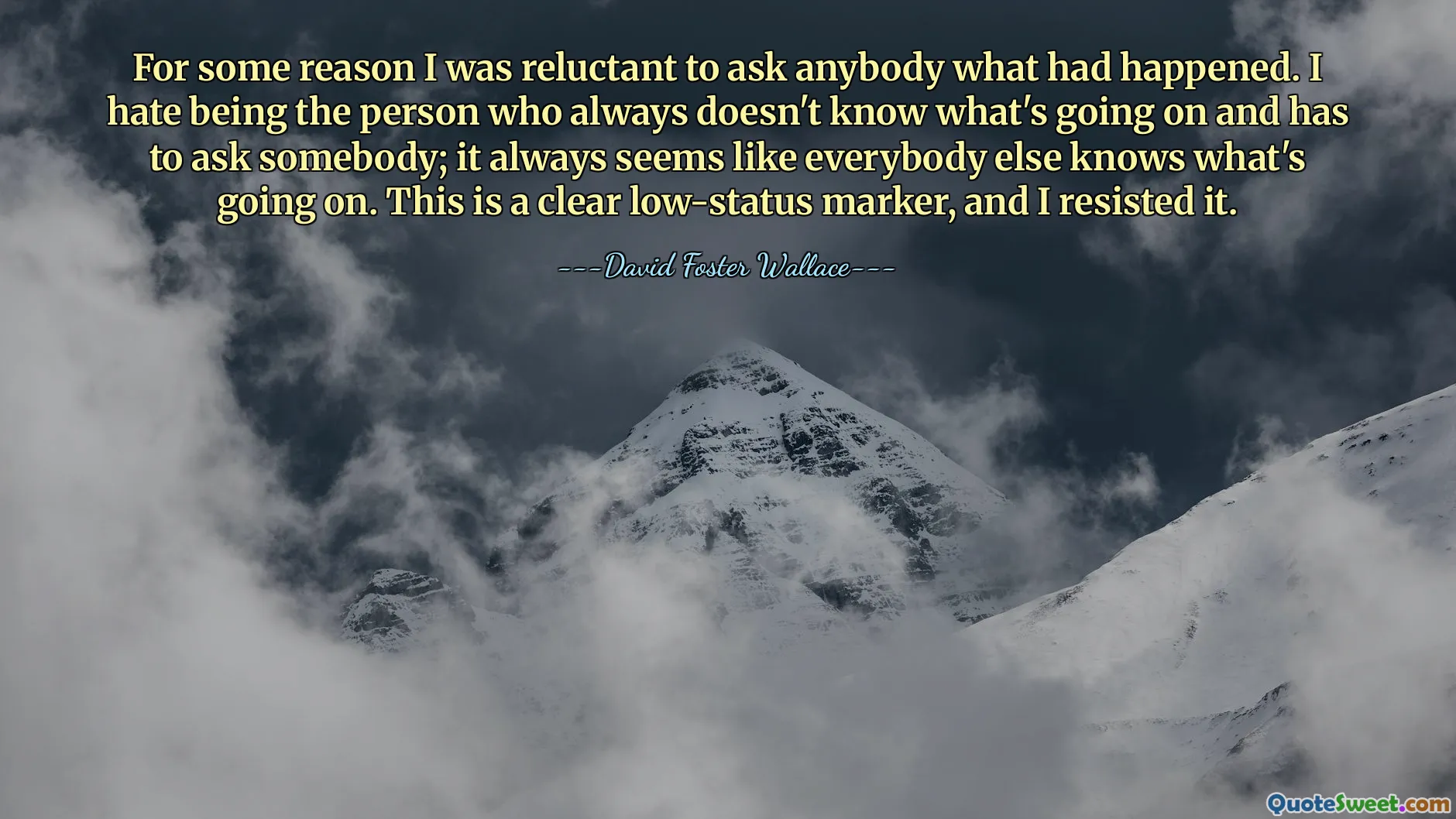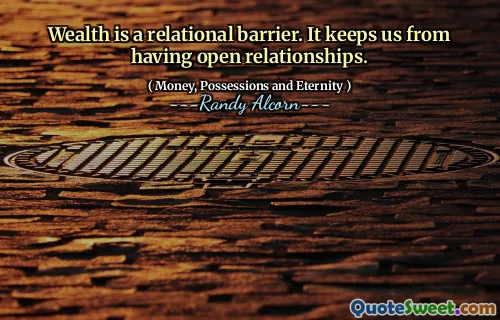
For some reason I was reluctant to ask anybody what had happened. I hate being the person who always doesn't know what's going on and has to ask somebody; it always seems like everybody else knows what's going on. This is a clear low-status marker, and I resisted it.
The quote succinctly captures a deeply relatable human experience—the discomfort and vulnerability associated with not having situational awareness and thus feeling low in social status. The speaker articulates a common social anxiety: the fear of appearing uninformed or out of the loop. This resonates with our intrinsic need for acceptance and belonging. When we perceive others as having greater knowledge, status or control in a social setting, we often feel diminished or exposed. It underscores how status isn’t just about power or position in an objective sense but is often tied to information, awareness, and communication flows.
The speaker’s resistance to asking questions—even when it might be practical—is revealing. It highlights the tension between actual benefits (gaining knowledge by asking) versus the perceived social cost of revealing ignorance. This sheds light on how our social behavior is often guided by fear of judgment rather than rational consequences. It can lead to unnecessary isolation or misunderstanding.
Moreover, the quote throws light on the nuanced social dynamics related to knowledge-sharing. While asking questions fosters connection and learning, it also reveals vulnerability. The refusal "to be the person who always doesn't know" shows how repeated exposure or marginalization can build a defensive mechanism to protect one's social perception.
David Foster Wallace captures a universal truth about human psychology and social behavior: the need to guard one's status, the fear of being left out, and the inherent paradox that acknowledging ignorance can feel like both a weakness and a potential step toward genuine understanding and inclusion.









